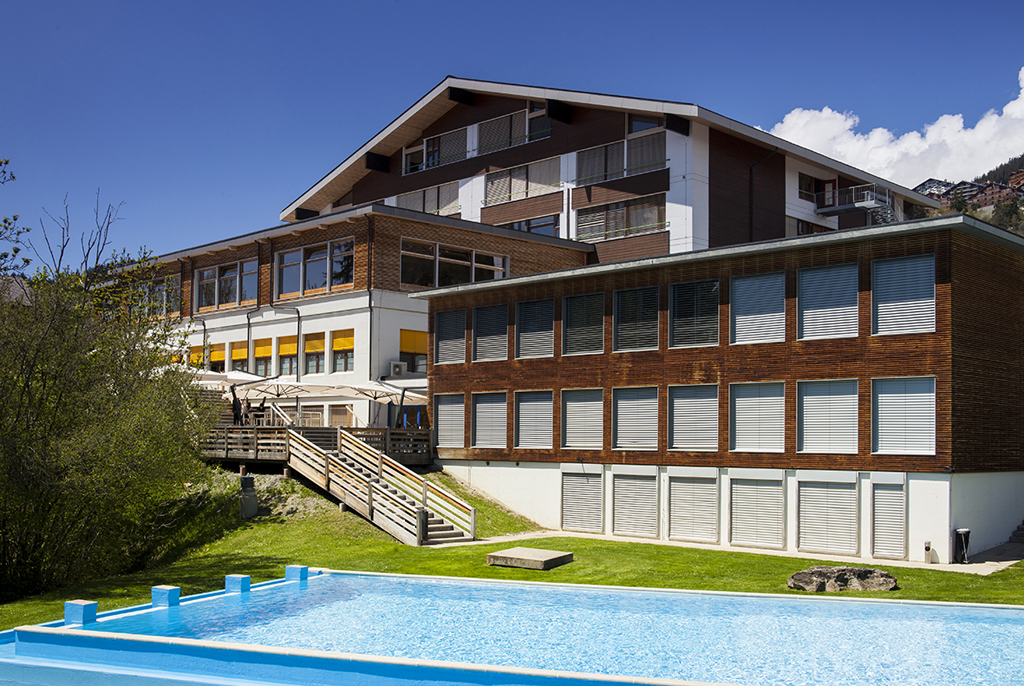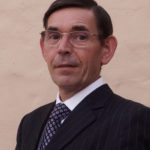Dr Stuart Jauncey comes on board of Les Roches


Les Roches appoints new Managing Director of Dr. Stuart Jauncey
Dr. Stuart Jauncey serves as Managing Director of Les Roches Global Hospitality Education, a leading hospitality management institution with campuses in Switzerland, Spain, and China. An academic and hospitality professional, he has spent the past ten years as Dean of The Emirates Academy of Hospitality Management (EAHM) in Dubai.


PEAKLIFE brings you Q & A with Dr. Stuart Jauncey, about his experience and The Les Roches.
Les Roches is ranked among top 5 higher education institutes for hospitality management; how do you maintain the high standards of learning to keep up the ranking? Any new introductions to further enhance the learning experience?
Founded in 1954, Les Roches Global Hospitality Education is a private institution based on the Swiss model of experiential learning, offering undergraduate and graduate degrees in the fields of hospitality, tourism and event management. Les Roches does indeed rank among the top institutions for hospitality and leisure management in the recent QS World University Rankings by Subject. We are especially proud of our top three ranking in the employer reputation category, a testament to our close relations to the industry and the relevance of our education model.
In order to stay relevant in the fast-paced hospitality industry, we constantly revise and update the curriculum to make sure our students master the skills that employers are demanding. One such innovation is a new set of specializations in Entrepreneurship, Digital Marketing, Finance, and Resort Management, available to our Bachelor students in Switzerland and Spain.
What are the USPs of Les Roches that make it the world’s most premier institutions in hospitality?
We prepare entrepreneurial and innovative graduates across a network of campuses in Switzerland, Spain, and China. Through this global approach and together with a multi-cultural student body from over 90 different countries, we bridge the gap between traditional Swiss hospitality management education and staying ahead of the global industry trends, making us a unique educational institution.
Tell us about your personal experience with the hospitality industry and how did it all start? What is your story of success?
Hotels have always fascinated me and I loved the atmosphere, service, food and often the majestic buildings themselves. One of my first proper jobs was as a Junior Footman for a palace in the UK. Although the pay was poor and the working hours long, I really enjoyed learning the traditional skills of hospitality. I moved on to hotels where I came to realize that every property has its own personality, just in the way that people differ.
I later became a senior manager at a new palace in the Islamic State of Kuwait. They had a policy of developing young talent offered for me to attend a Master’s degree back in England. Shortly after the Gulf War broke out and I obviously could not return to Kuwait but stayed on to complete a Ph.D. and teach and ended up in education. To this day, I sometimes miss operations with the excitement and challenges of satisfying and delighting guests, and the comradeship, trust, and competence to build an entire team to achieve it.
What are the changes and improvements that you expect should come about in the field of hospitality?
The hospitality industry is among the most affected by technology, innovation, and digitalization: within one decade, the distribution of rooms has moved completely online and sharing economy models have become a real alternative to traditional lodging and transportation. This has made it easier to find, compare and book services and there will most likely be more ways how technology facilitates the less convenient aspects of travel.
At the same time, the basic services of welcoming guests and providing accommodation remain the same and technology cannot replace meaningful human interactions, but in fact makes them more important than ever.
What is the concept and learning behind the ‘Cultural Night’ that takes place after every semester at Les Roches?
The Les Roches Cultural Night celebrates the richness of cultures, customs, and cuisines that come together on our campuses. We encourage our students to live and share their values, but most importantly learn to understand other cultures: in a global hospitality industry, students will face clients and colleagues from around the world, and our campus environment prepares them for this experience.
Tell us more about the ‘Innovation Lab’ that is a part of the Les Roches
At Les Roches, we allow our students to experiment and test their ideas in a safe environment. In the Innovation Lab they can try out the latest technologies, build models with 3D printers or create their own video and multimedia content. But we are taking this empowering approach further: students experiment in kitchen labs with ingredients and materials, and we support recurring students-run industry events and wine fairs on campus.
We hear Les Roches is all about following your passion and living your dreams. What is your feeling of being an influencer and an inspiration to the youngsters?
When our students arrive on campus they are curious and eager to learn but have no clear ideas about their future. Three and a half years, two internships, long hours in service and countless group projects later, the transformation they undergo and the level of maturity they reach are striking and fill not only parents but all the Les Roches staff and faculty with pride.
What is your advice or recommendation to the youngsters looking at exploring a career in the field of hospitality and business management?
Do not hesitate, it is a wonderful industry. Looking back at my own career to date, I have traveled widely throughout Europe, the Middle East, the Americas and spent time in Bangladesh. The stereotype of long hours for little reward is also not true, just look at new luxury properties such as the Atlantis in Dubai with 1,500 rooms; a senior manager here is a strategist and logistics planner and paid more than most managers in other industries. First, however, you need to gain operational experience which requires time, enthusiasm and commitment.
Les Roches is also a place for respecting cultural differences, so what is Les Roches’ connect with India, in numbers and figures?
Les Roches is represented in India for over 20 years and has established an excellent reputation as one of the world’s leading hospitality management institutions. As a result, our Indian student community is among the most numerous and makes up nearly ten percent of our student body in Switzerland. They tend to show a strong interest in entrepreneurship and business management, with many from a hospitality background training to later take over family businesses. Others are interested in building their own restaurant business or franchise, while some become hoteliers with global hospitality brands.
Les Roches has its three campuses, in Spain, China, and Switzerland. What are the factors that make the three campuses different and yet similar to each other?
Our Les Roches campuses are all set in unique, yet very distinct locations: the Swiss campus is nestled in the Alps close to the ski and golf resort of Crans-Montana, Marbella is a luxury tourism destination on the shores of the Mediterranean and Shanghai is booming Asian megalopolis. Albeit set in different destinations, each campus follows the same curriculum based on the Swiss model of hospitality education combining practical with theoretical training. Our more adventurous students can easily transfer between the different study locations to gain maximum international experience and cultural exposure.
More from our site
Recent Posts
Shaping Tomorrow’s Golf Champions With Leela Palace Bengaluru
The 3rd edition of The Leela Golf Tournament celebrated young talent and brought together skill, precision and camaraderie!
The 3rd edition of The Leela Golf Tournament celebrated young talent and brought together skill,…
The Duo Behind KAIA Goa & Gigi Bombay, Redefines Hospitality
In conversation with the founders of Pawan Shahri and Nikita Harisinghani, the duo behind Chrome Hospitality Asia
In conversation with the founders of Pawan Shahri and Nikita Harisinghani, the duo behind Chrome…
Precision, Durability, and Swiss Legacy
Victorinox launches the Swiss Army collection, featuring three distinct models that emphasise exceptional quality, resistance and versatility
Victorinox launches the Swiss Army collection, featuring three distinct models that emphasise exceptional quality, resistance…
A New Era of Luxury Interiors With Sussanne & Gauri Khan
Sussanne Khan & Gauri Khan unite to bring an awe-inspiring, six-storey sanctuary of luxury, art, and design in Hyderabad
Sussanne Khan & Gauri Khan unite to bring an awe-inspiring, six-storey sanctuary of luxury, art,…
Air India x Lufthansa: Fly To These International Destinations Now
Expanding their codeshare partnership, Air India and Lufthansa Group have added 100 new routes to their combined network
Expanding their codeshare partnership, Air India and Lufthansa Group have added 100 new routes to…
Luxury’s Most Recent & Vibrant Launches This Season
The luxury landscape is brimming with bold innovations, striking partnerships, and immersive experiences
The luxury landscape is brimming with bold innovations, striking partnerships, and immersive experiences

